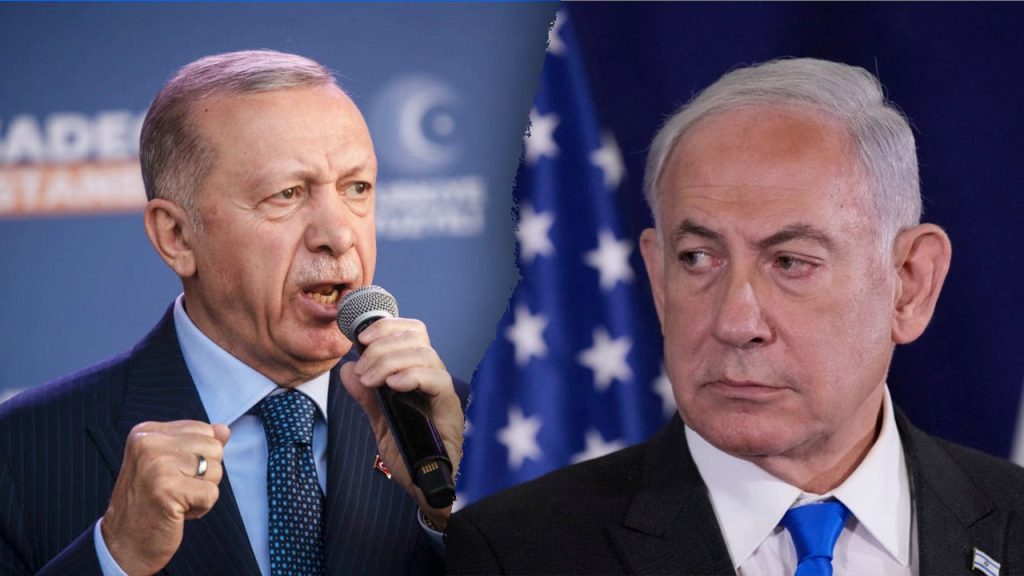The escalating tension between Israel and Turkey has reached a fever pitch following Ankara’s condemnation of Israeli military actions in Syria, coinciding with Turkey’s increased operations within the war-torn nation. The heart of the dispute lies in the Golan Heights, a territory captured by Israel from Syria in 1967 and subsequently annexed, a move not recognized internationally. Turkey accuses Israel of expanding settlements in the Golan Heights, labeling it an illegal land grab. Israel, in turn, accuses Turkey of hypocrisy, citing Turkey’s extensive military presence and influence in northern Syria, supporting rebel groups and effectively controlling vast swathes of Syrian territory.
The exchange of accusations reveals a deep rift between the two countries, marking a significant downturn in their already strained relationship. Diplomatic ties, once robust, have deteriorated significantly in recent years, fueled by political disagreements and ideological clashes. Turkey’s strong support for Hamas, the Palestinian militant group that controls Gaza, and its criticism of Israeli policies towards Palestinians, have further exacerbated tensions. The recent trade ban imposed by Turkey on Israel underscores the severity of the diplomatic breakdown. The ongoing conflict in Syria, with both nations involved albeit with differing agendas, has become a dangerous flashpoint, adding fuel to the fire.
Israel’s justification for its actions in the Golan Heights stems from security concerns, viewing the territory as a crucial buffer against threats from Iran and Hezbollah, both of which operate within Syria. Prime Minister Netanyahu has declared the 1974 Disengagement Agreement with Syria null and void, arguing that the Assad regime’s abandonment of positions during the Syrian civil war renders the agreement obsolete. This stance further complicates the situation and fuels regional instability. Israel asserts that its presence in the Golan Heights is essential for its self-defense, while Turkey views it as a violation of international law and a provocation.
Turkey’s expanding footprint in northern Syria, including its support for various rebel groups, raises concerns about its long-term objectives in the region. Analysts suggest that Turkey’s ambitions extend beyond simply combating Kurdish forces and may involve establishing itself as a major power broker in a post-conflict Syria. This ambition is further fueled by Turkey’s reliance on financial support from Gulf states, particularly Qatar, to rebuild areas under its influence. Turkey’s operations against Kurdish groups in northern Syria, whom it views as a security threat linked to the PKK, also raise alarms about the potential for further destabilizing the region and potentially allowing for a resurgence of ISIS.
The deteriorating relationship between Israel and Turkey carries significant risks for regional stability. While direct military confrontation between the two countries remains unlikely in the immediate future, the potential for accidental clashes or unintended escalation is growing. The presence of both countries’ military forces in close proximity in Syria increases the likelihood of miscalculations or misunderstandings that could spiral into a larger conflict. The lack of effective communication and deconfliction mechanisms between the two countries further amplifies these risks.
The international community faces the challenge of mitigating the escalating tensions between Israel and Turkey and preventing the situation from spiraling out of control. Dialogue and diplomatic efforts are crucial to de-escalate the situation and find common ground. The involvement of regional and international actors, including the United States and Russia, could play a vital role in facilitating communication and preventing further deterioration of the relationship. Addressing the underlying causes of the conflict, including the status of the Golan Heights and the future of Syria, is also essential for achieving a long-term solution and promoting regional stability. The ongoing war in Syria, with its complex web of actors and interests, provides fertile ground for miscalculations and unintended consequences, making the need for diplomatic solutions all the more pressing.


